New Year all year round: All New Year celebrations of different peoples of Russia
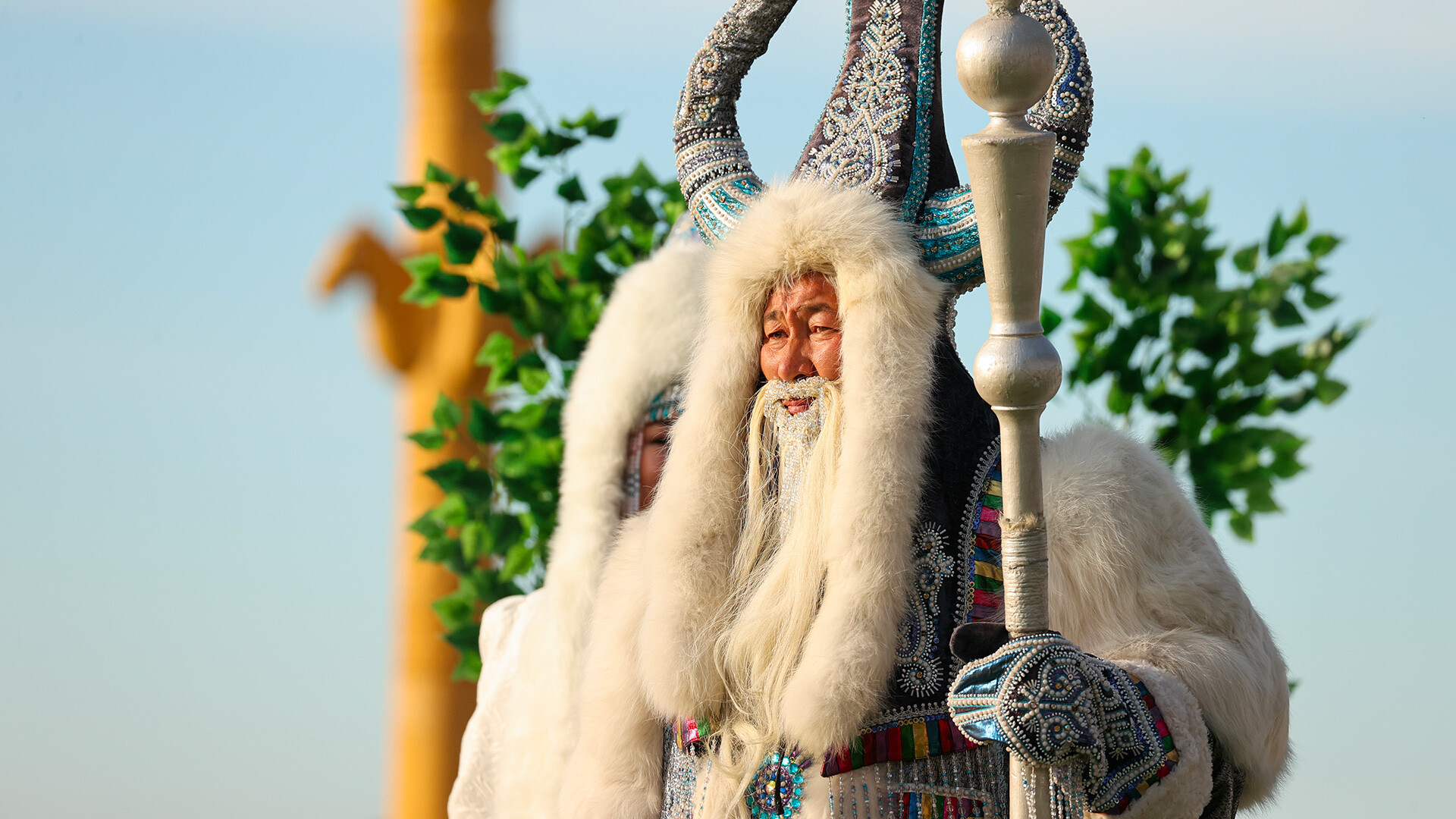
The New Year has been celebrated in Russia on January 1 only for the last three centuries. Until 1492, it fell on March 1 and, before 1700, on September 1. In December 1699, Tsar Peter the Great released a decree on setting a new date for the annual cycle from 1700 onward – January 1.
Meanwhile, different ethnic groups preserved their own ‘New Year’ celebration traditions. Their dates depend on the natural conditions of these peoples’ environments and their systems of chronology – by a solar calendar (to which the Gregorian calendar also adheres), a lunar calendar or a lunisolar calendar.
Why does New Year fall on different dates for different peoples?
For some ethnic groups, their chronology is only linked to the cycles of the Sun, so the dates for New Year don’t change substantially. The most vivid example is ‘Nowruz’, the celebration of the coming of spring and the New Year for the Iranian and Turkic peoples, which is celebrated by the solar calendar during the days of the spring equinox, which is March 19-22.
Other peoples use a lunisolar calendar, in which the cycles of the Moon are consistent with the annual movement of the Sun and the beginning of a month coincides with a new moon. That said, leap years by such a calendar have 13 months! For example, the Chinese New Year, celebrated according to the lunisolar calendar, falls on the first lunar day of the first month of the year. From the standpoint of the solar Gregorian calendar, it falls on one of the days between January 21 and February 21.
Muslim ethnic groups live according to a lunar calendar. A month has 29.5 days, it coincides with the phases of the Moon and their year is 11 days shorter than the Gregorian year. Their New Year is very flexible in relation to the Gregorian chronology.
When do the peoples of Russia celebrate their holidays marking the beginning of the year?
Multinational Russia celebrates New Year both on the general civil date of January 1, as well as on the dates in accordance with the calendars of national holidays. We’ve assembled together the most well-known ones.
January 6-7
- ‘Surhuri’ – New Year of the Chuvash people (Chuvash Republic)
- ‘Shorykyol’ – New Year of the Mari people (Mari El Republic)
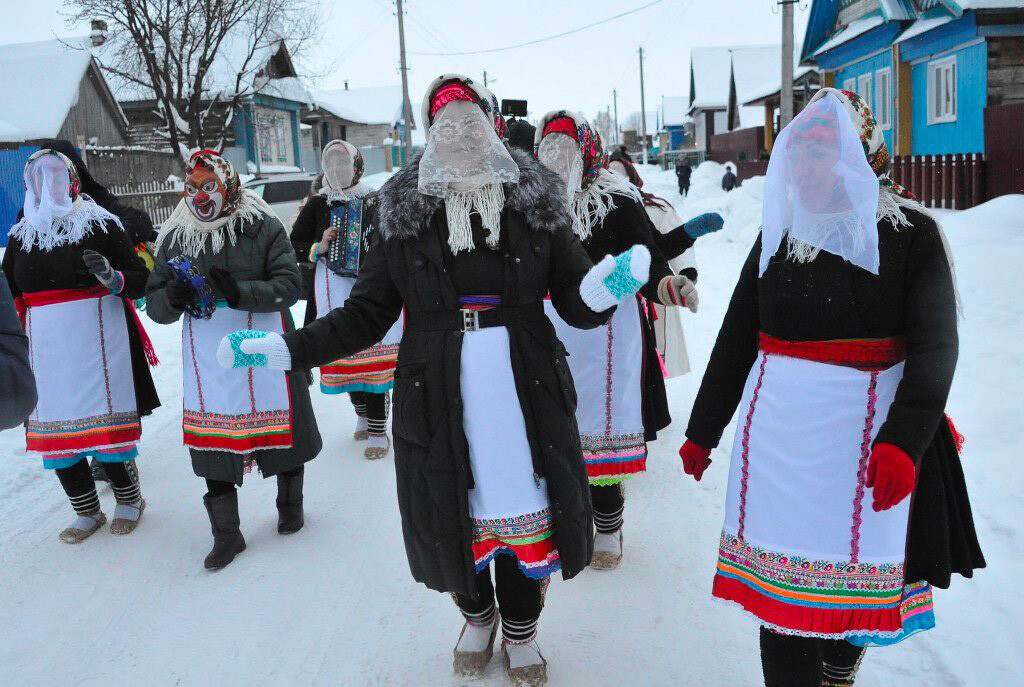 Shorykiol
Shorykiol
Initially, these holidays were celebrated on December 19-22, the days of the winter equinox. After these peoples converted to Christianity, the holidays “coincided” with Christmas on December 25. After the transition to the Gregorian calendar, these holidays were moved to the beginning of January.
January 13-14
- ‘Nog bon’ – Ossetian New Year (North Ossetia - Alania)
 Mityn Dada (Ossetian Santa Claus)
Mityn Dada (Ossetian Santa Claus)
This holiday is celebrated from Wednesday to Thursday of the second week of January, often on January 13-14, on the days of the Old New Year.
February 10 in 2024
- ‘Tsagaan Sar’ – ‘White Moon’, the Kalmyk New Year (Republic of Kalmykia)
- ‘Shagaa’ – Tuvan New Year (Republic of Tuva)
- ‘Sagaalgan’ – Buryat New Year (Republic of Buryatia)
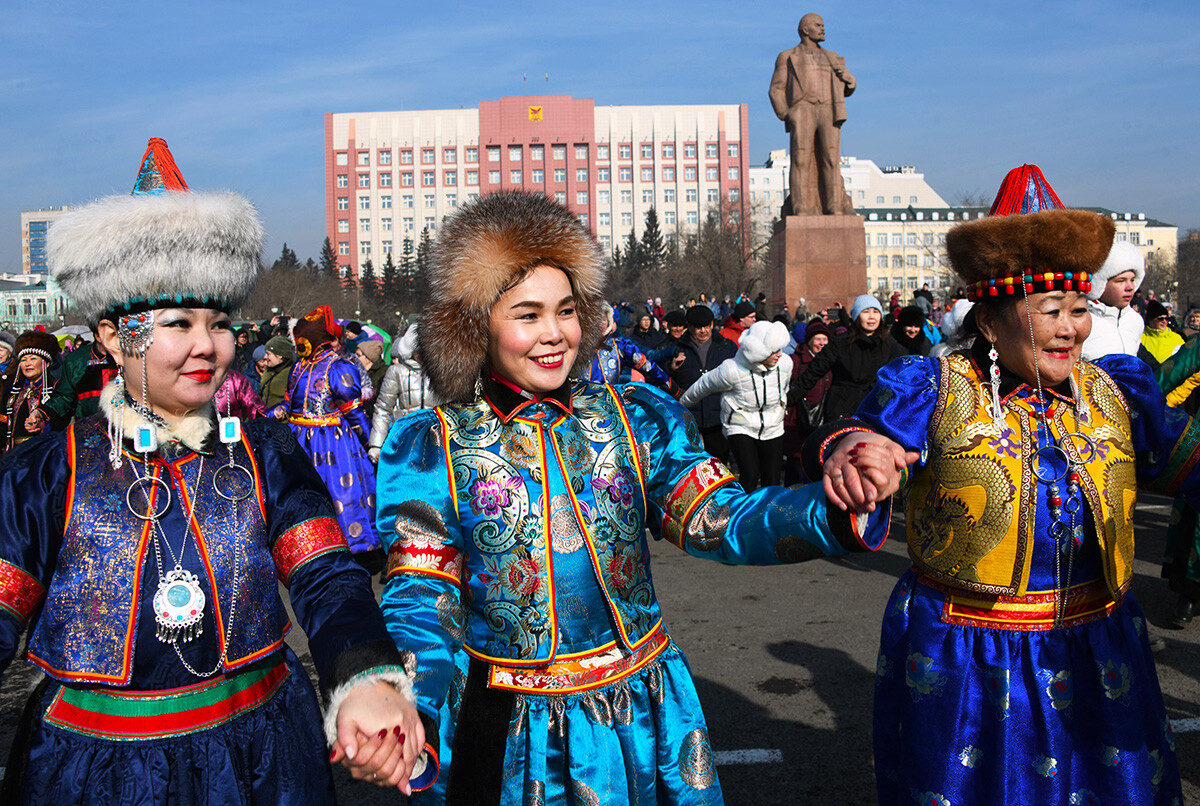 Participants of the folk dance-khorovod Yekhor at the Sagaalgan festival on the occasion of the Buddhist New Year in Chita.
Participants of the folk dance-khorovod Yekhor at the Sagaalgan festival on the occasion of the Buddhist New Year in Chita.
Celebrated on the first day of the year, according to the lunisolar calendar.
February 13, 15 or 17 in 2024
- ‘Chaga-Bairam’ – Altai New Year (Republic of Altai)
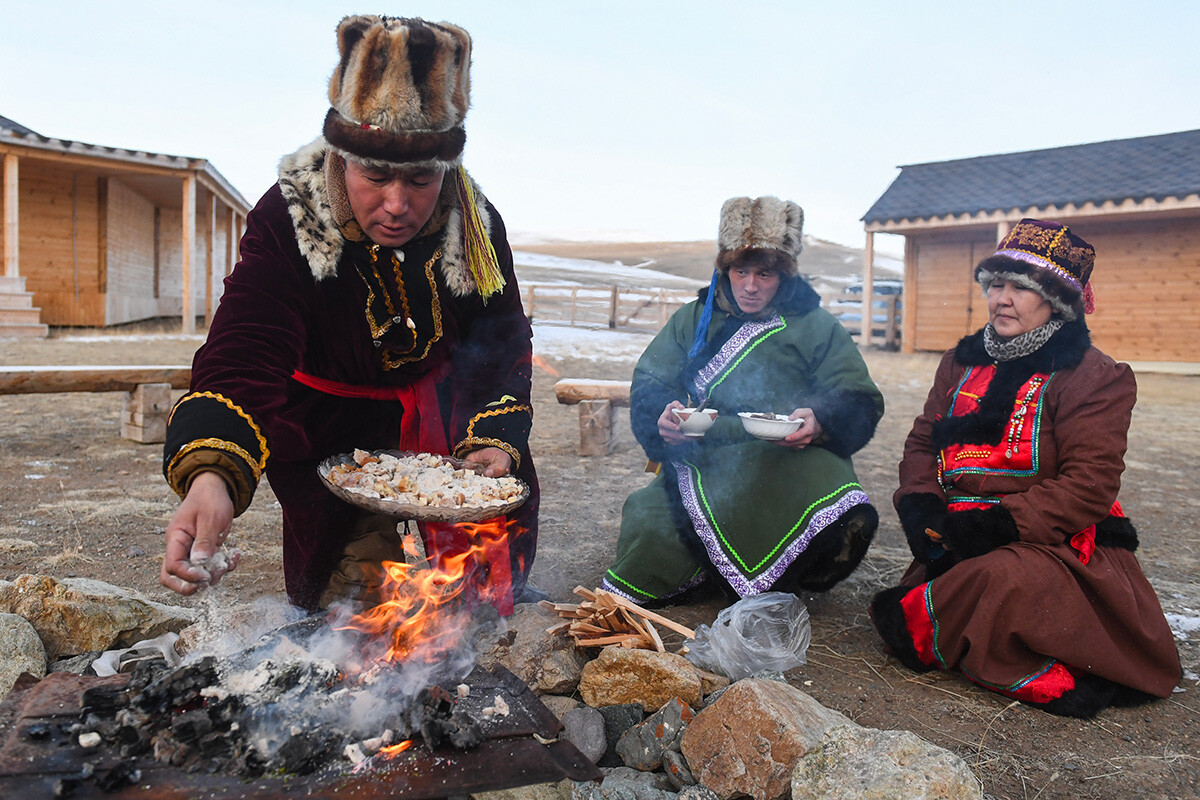 Local residents conduct a rite during a celebration of Chaga Bairam, a New Year festival according to the Lunar calendar, in Saylyugemsky National Park, Kosh-Agach District.
Local residents conduct a rite during a celebration of Chaga Bairam, a New Year festival according to the Lunar calendar, in Saylyugemsky National Park, Kosh-Agach District.
Celebrated on the fourth, sixth or eighth day of the new moon, according to the lunisolar calendar. The date is established annually by the Government of the Republic of Altai.
March 20-22
- ‘Nowruz’ – celebration of the coming of spring and the New Year (the republics of Tatarstan, Bashkortostan, Crimea, as well as the republics of the North Caucasus)
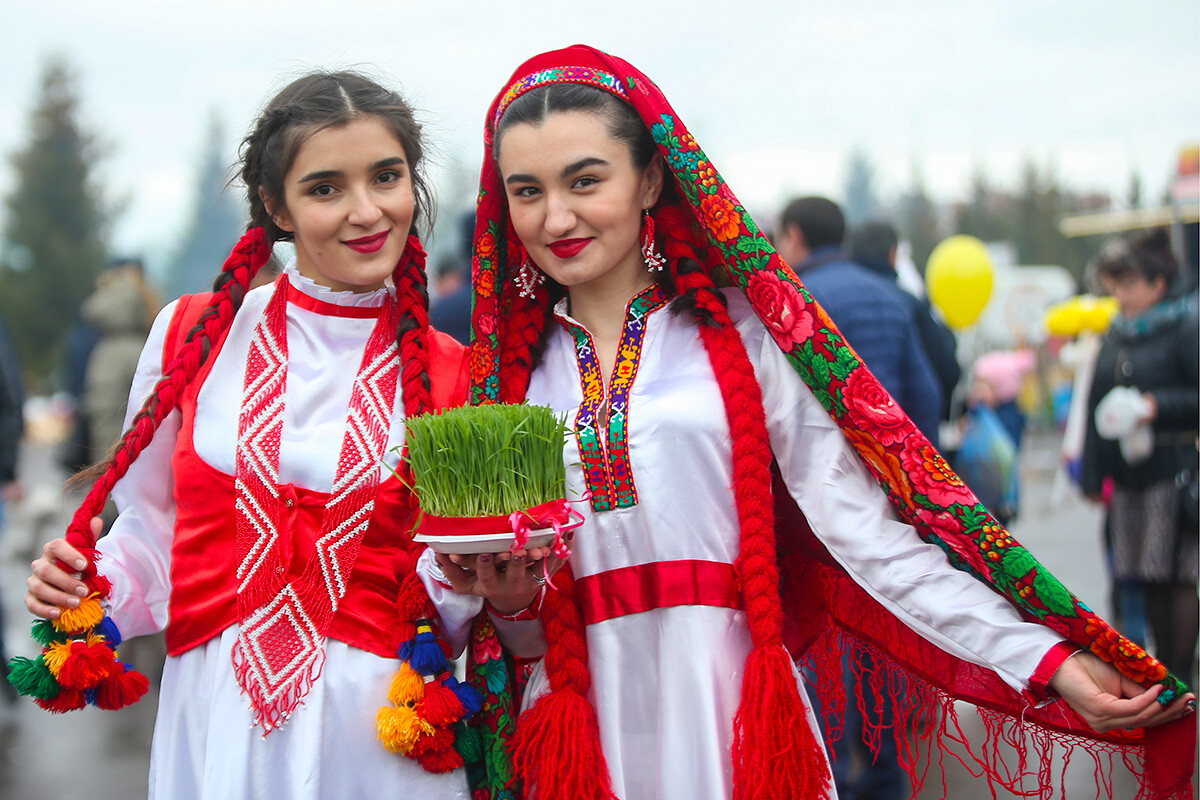 Celebrations of Nowruz holiday in Kazan
Celebrations of Nowruz holiday in Kazan
- ‘Adyghe Ilesyshchle’ – Adyghe New Year (Republic of Adygea, the Kabardino-Balkarian Republic)
- ‘Yaran Suvar’ – Lezgin New Year (Republic of Dagestan)
- ‘Ebeltsan’ – Tabasaran New Year (Republic of Dagestan)
- ‘Khidin-Ush’ – Aghul New Year (Republic of Dagestan)
- ‘Yukhvanin Yug’ – Tsakhur New Year (Republic of Dagestan)
- ‘Er’ – Rutul New Year (Republic of Dagestan)
- ‘Jylgayak’ – Kumandin, Tubalar and Chelkan New Year (Republic of Altai)
- ‘Chyl-Pazhi’ – Shorian and Teleut New Year (Kemerovo Region)
- ‘Chyl Pazy’ – Khakas New Year (Republic of Khakassia)
Celebrated during the days of the spring equinox or the day before.
April 7
- ‘Vurny Khatl’ – Khanty New Year (Khanty-Mansi Autonomous Area)
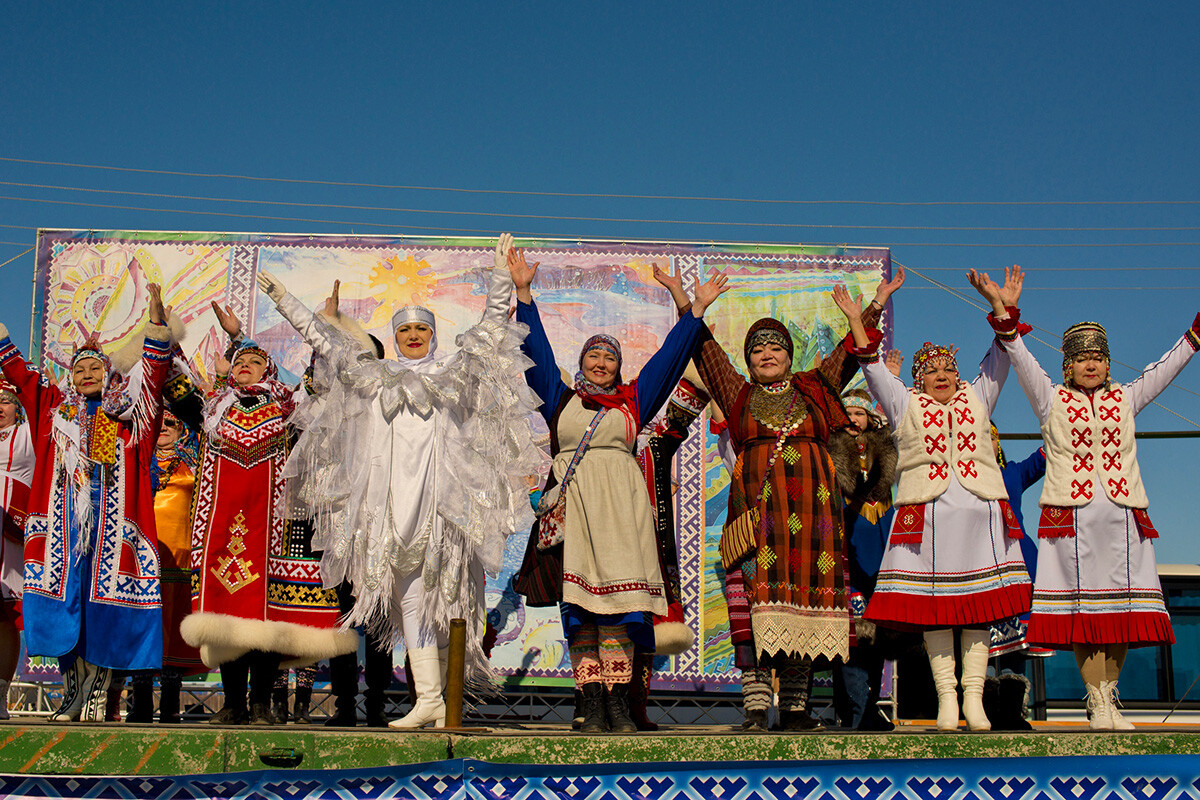 Vurny Khatl
Vurny Khatl
- ‘Urinekva khotal’ – Mansi New Year (Khanty-Mansi Autonomous Area)
This is known as ‘Crow Day’; it coincides with the Orthodox Christian holiday of the Annunciation.
June 8 in 2024
- ‘Muchun’ – Evenk New Year (Krasnoyarsk Region)
- ‘Bakaldyn’ – Evenk New Year, Sakha Republic (Yakutia)
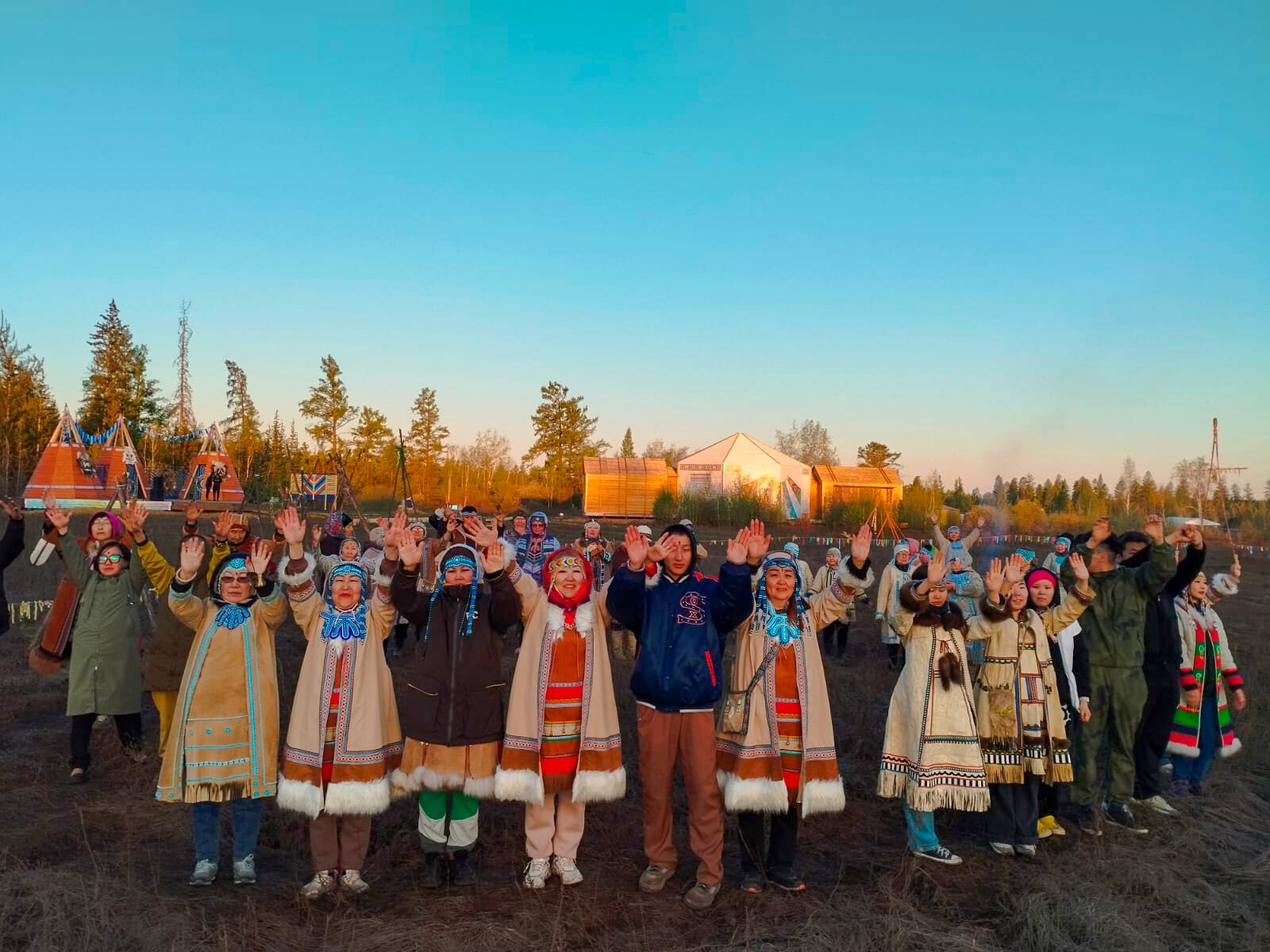 Bakaldyn
Bakaldyn
‘The Time of the Cuckoo’. Celebrated annually on the second Saturday of June.
June 20-22
- ‘Yhyakh’ – Yakutian New Year (Republic of Sakha [Yakutia], Krasnoyarsk Territory)
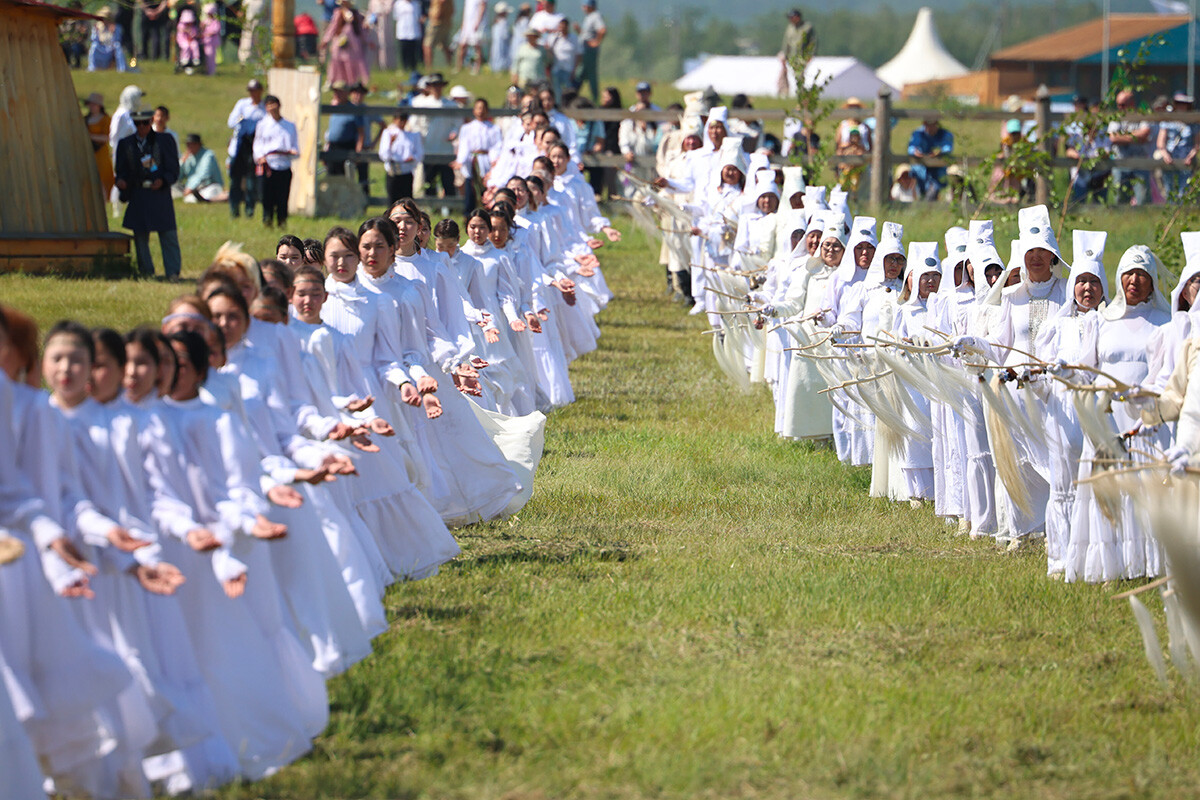 Participants of the national holiday "Ysyakh Tuimaady" in the ritual complex Us Khatyn.
Participants of the national holiday "Ysyakh Tuimaady" in the ritual complex Us Khatyn.
- ‘Khebdenek’ – New Year of the Evens (Magadan Region)
- ‘Nurgenek’ – New Year of the Evens (Kamchatka Territory)
- ‘Evinek’ – New Year of the Evens, Republic of Sakha (Yakutia)
- Female New Year of the Nanai people (Khabarovsk Territory)
Celebrated during the days of the summer equinox.
July 7 in 2024
- Muslim New Year

Celebrated on the first day of Muharram – the first month of the year.
August 20 in 2024
- The ‘Holiday of the Moose’ – New Year of the Selkup people (Yamalo-Nenets Autonomous Area, Tyumen Region, Krasnoyarsk Territory, Tomsk Region)
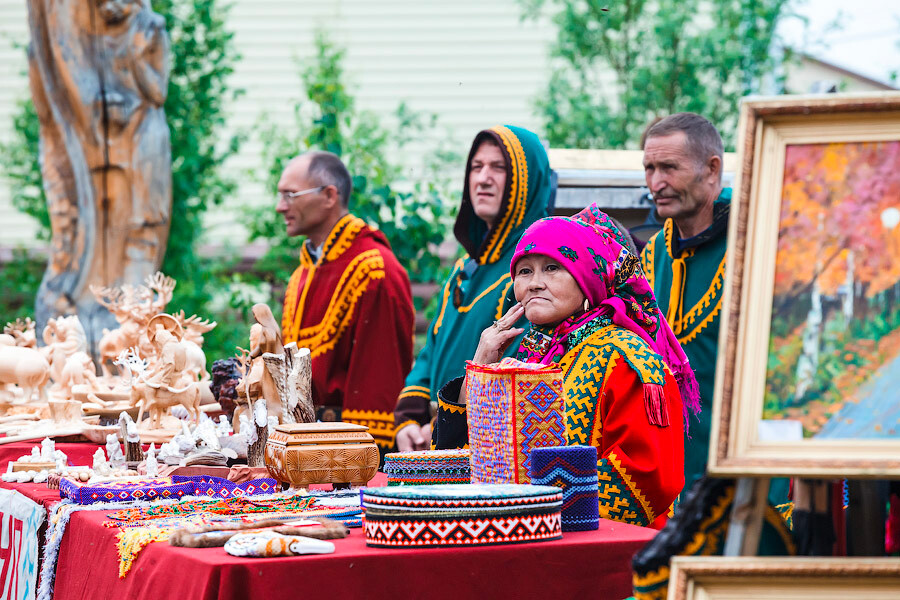 Selkups
Selkups
Celebrated on the day of the last summer full moon.
September 14
- Eastern Orthodox liturgics or the ‘Start of the Indiction’ – beginning of the year in the Orthodox Christian calendar. According to the Julian calendar, which the Russian Orthodox Church follows, it falls on September 1.
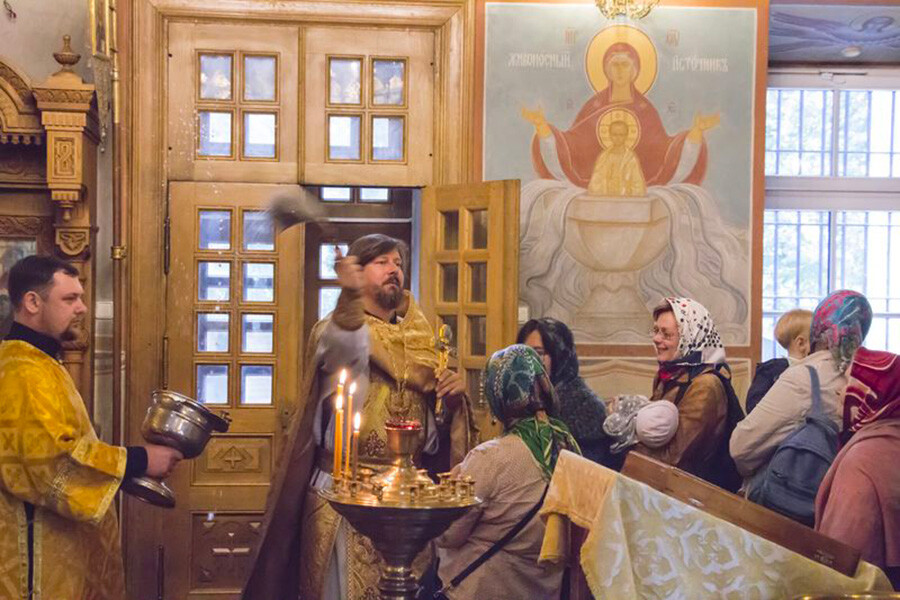 Festive prayer service on Indictus - Church New Year - in the village of Fedosyin (Novoperedelkino)
Festive prayer service on Indictus - Church New Year - in the village of Fedosyin (Novoperedelkino)
- New Year of the Pomors (Arkhangelsk Region). The Pomors refused to obey the decree of Peter the Great of moving New Year to January 1.
October 2 in 2024
- ‘Rosh Hashanah’ – Jewish New Year (Jewish Autonomous Region and other regions)
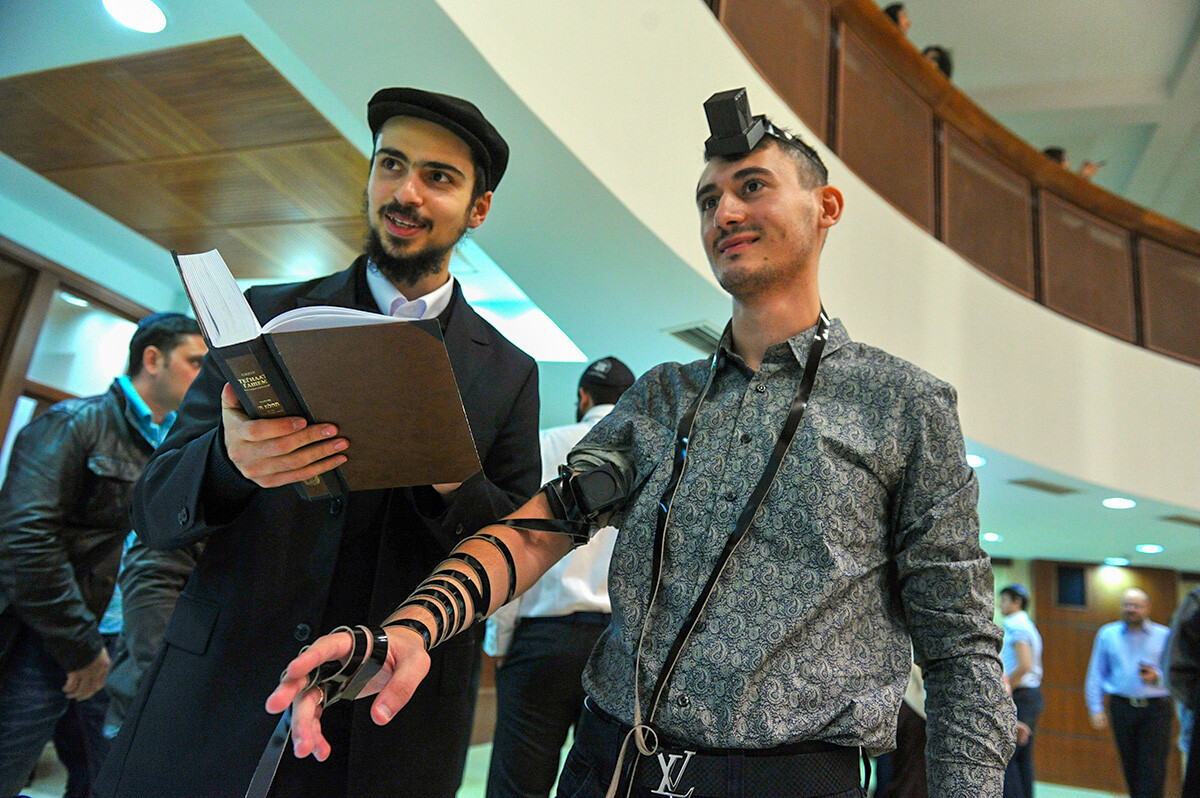 Young people before the Rosh Hashanah celebration, the Jewish New Year, at the Moscow Jewish Community Center.
Young people before the Rosh Hashanah celebration, the Jewish New Year, at the Moscow Jewish Community Center.
Celebrated during the new moon of the fall month of Tishrei by the Jewish (lunisolar) calendar, which falls in either September or October.
The beginning of November
- Nenets New Year (Yamalo-Nenets Autonomous Area)
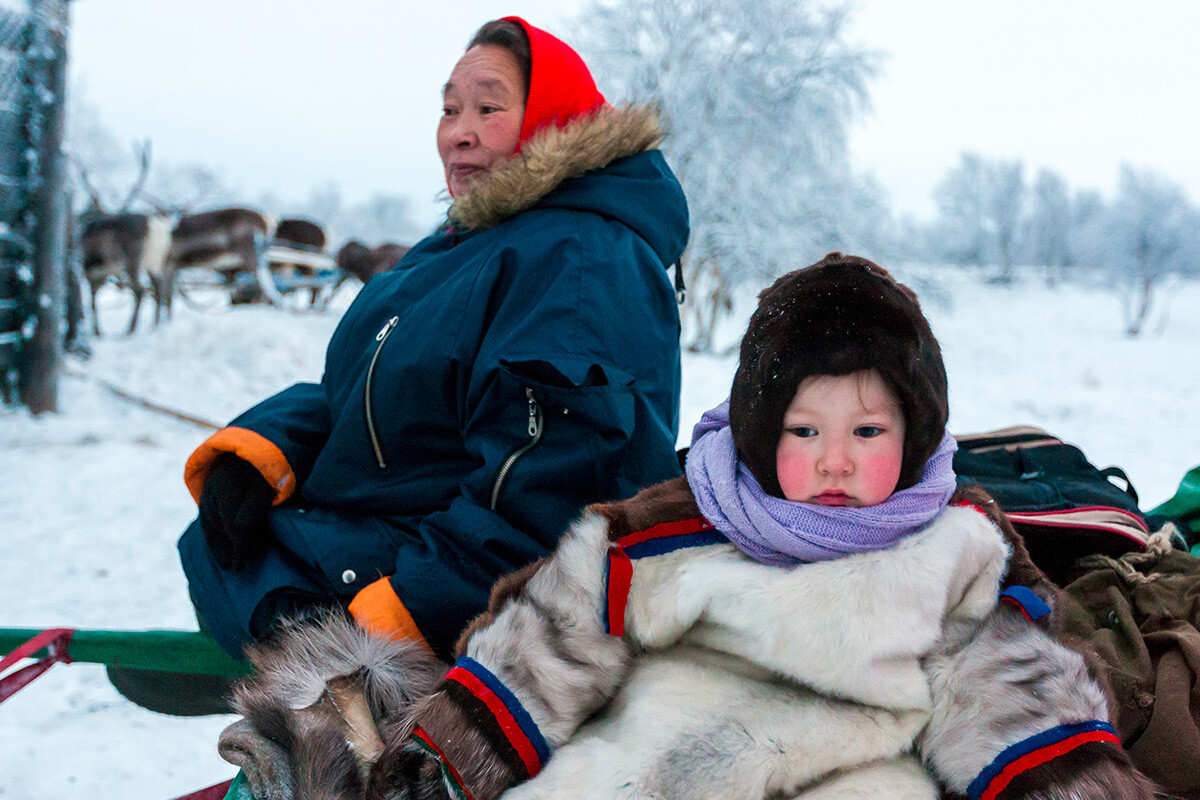 Yamalo-Nenets Autonomous Area, Russia - November 24, 2016: A child at the Kharp reindeer farm in the village of Krasnoye.
Yamalo-Nenets Autonomous Area, Russia - November 24, 2016: A child at the Kharp reindeer farm in the village of Krasnoye.
The Nenets people lived in accordance with a lunisolar calendar. Their year begins with ‘Nosindalva’ – the month of the arctic fox hunt.
December 20-22
- ‘Pegytti’ – Chukchi New Year (Chukotka Autonomous Area)
- Male New Year of the Nanai people (Khabarovsk Territory)
- ‘Tuygivin’ – Koryak New Year (Magadan Region)
Celebrated during the days of the winter equinox.


